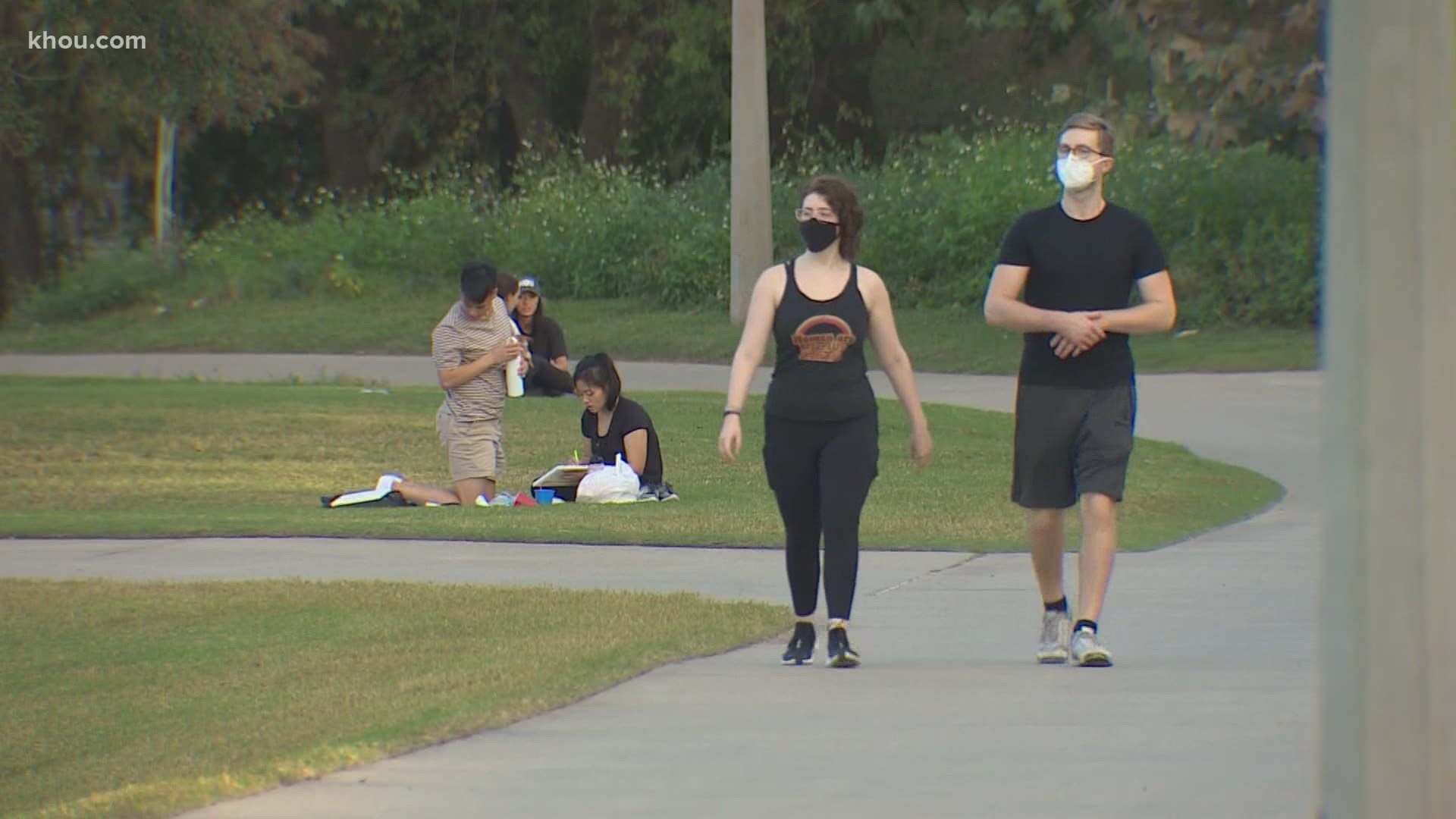HOUSTON — The Houston Health Department's contact tracing program is preparing for an anticipated spike in COVID-19 cases.
Texas' Department of State Health Services reported 11,738 new cases of coronavirus on Friday, the second-highest single-day total since the pandemic began. That figure comes as Texas reports an average of more than 9,000 cases per day over the last two weeks.
The Houston Health Department filled its 300 contact tracing positions, something it was lacking during the height of the pandemic over the summer. During that period, the understaffed tracers were overwhelmed trying to track the spread of the virus.
"We were just inundated with cases," said Beau Mitts, who oversees data services and works closely with HHD's contact tracing program.
Mitts said tracing the virus is getting easier: medical providers and laboratories report cases in a more timely manner, and a full staff means more hands to interview people who test positive.
He said what they are still missing is people's cooperation with contact tracers when they call.
“We still run into that resistance or lack of trust," said Mitts. “We put in a few measures to reassure the public that we are who we say we are.”
Some of those measures include centralizing the phone number that appears on a caller ID: Houston Health 713-853-8700, which people can call back, and creating a web-based survey to cut down the amount of time contact tracers spend talking to someone.
"We’re in a much better place than we were back in the summertime," said Mitts.
Mitts said approximately 25 percent of people identified as contacts to someone who tested positive for COVID-19 have become a case themselves.
When they interview people who are positive, they say they hear a few common activities: eating out at restaurants, going to grocery stores, working on job sites, and most often – hanging out with others at home.
Mitts said visiting a place does not determine if someone gets the virus, but rather, how they behave during that visit.
“With the community spread how it is, people should be using the same precautions no matter where they go," said Mitts.
Smaller case loads make tracing easier. Community spread of the virus, which Houston is currently facing, makes their jobs harder.
“It was more about ‘where can we intervene?’ but now that we have community spread and we’re seeing so many cases, it’s not the same," said Mitts.
Contact tracers will never ask for your social security number, bank information or credit card number.
For more info on what you can expect from the Houston Health Department's contact tracing program, visit their website, by clicking here.

